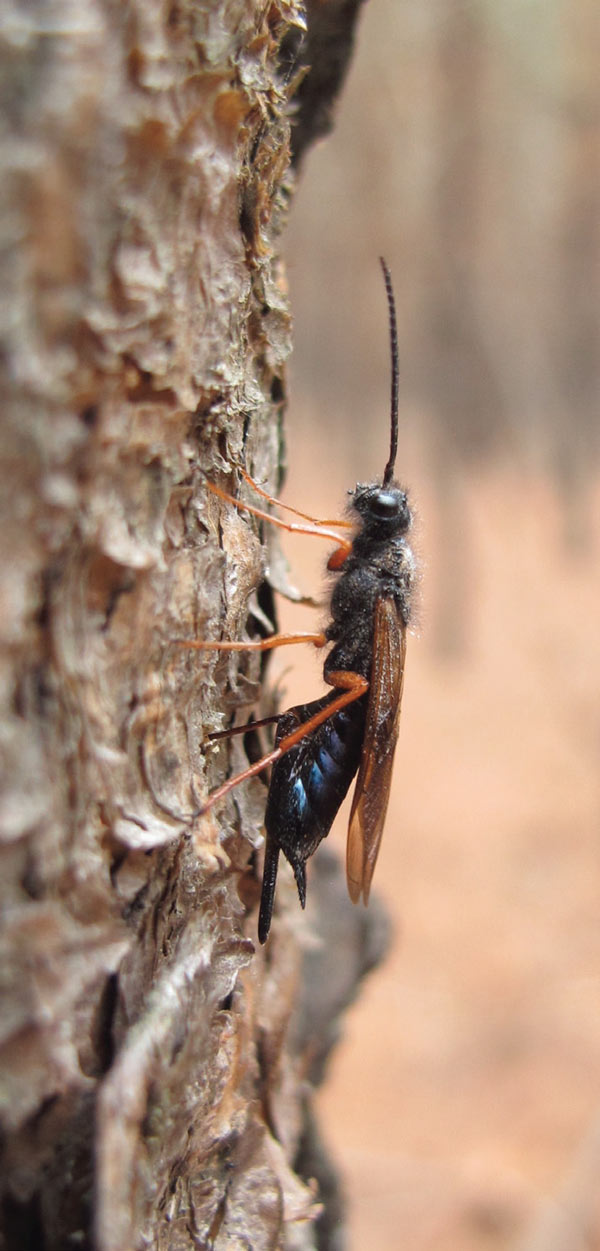 Sirex wasp female ovipositing
Sirex wasp female ovipositing
The wasp and its obligate associate, a mutualistic fungus, was accidentally introduced in New Zealand around 1900 and has since steadily made its way to all continents where pine trees are grown commercially. Unlike in its native range, the wasp kills pine trees within months after attack and has consequently become one of the biggest threats to these pine plantations globally.
Professor Bernard Slippers in FABI writes that one of the reasons the wasp has become so deadly outside its native range is because it has no natural enemies in areas where it has been introduced. An important method of control of the wasp is therefore to introduce its natural enemies; a process called biological control. Most prominent is a microsopic worm or nematode called Deladenus siricidicola. The nematodes infect wasp larvae and eventually sterilise the developing adult female wasps. The associated fungus is essential for both the development of the wasp larvae and the nematodes that feed and breed on it before infecting the wasp larvae.
The efficiency of the nematode at controlling the wasps’ populations is dependent on variable characteristics of the environment, nematode, fungus, wasp and pine trees in which the larvae develop. For this reason, researchers at FABI study all the links in this complex food chain to support the development of a locally effective management programme, together with collaborators from Australia, Japan, New Zealand and various countries in Europe, North and South America.
An important step in this process has been the sequencing of each organism’s genome by FABI researchers. These data now provide a blueprint to study various aspects of the life history of these organisms. An understanding of genetics also allows the researchers to develop tools to select the best nematode for the job, to create global maps of the natural distribution of different variants of nematodes, wasps and trees, and to investigate new potential methods of biocontrol, such as creating sterile male wasps.
FABI has close linkages with government and industry through the Tree Protection Cooperative Programme and a national Sirex Control Programme. It is a model partnership between business, policy-makers and scientists. FABI, as a global front-runner in holistic tree health research, recently called on world leaders to tackle similar problems on a global scale through international collaborations and multidisciplinary research.